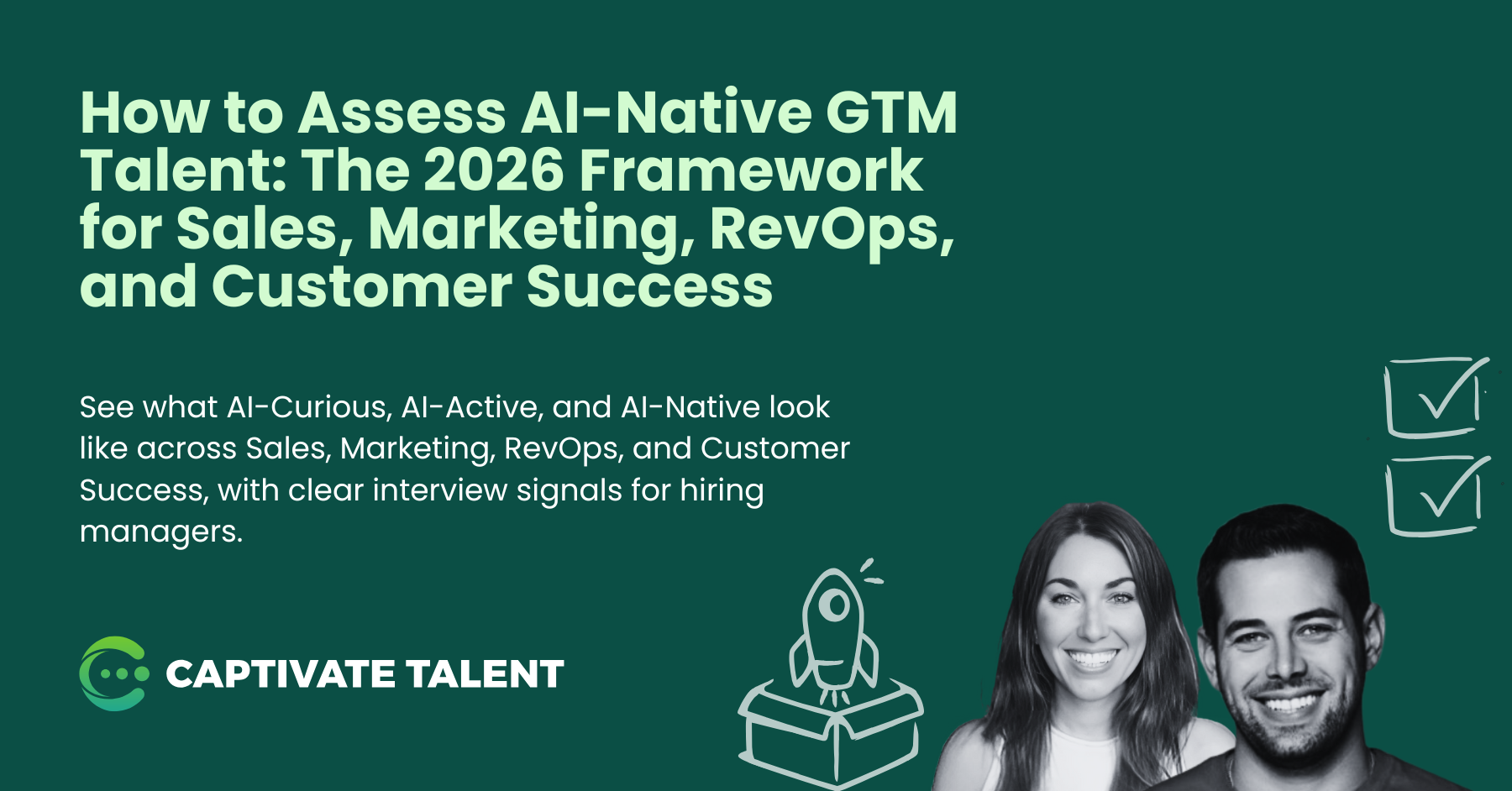Overview
Guests:
- Rebecca Price, Partner @ Primary Ventures—Rebecca is a Partner at Primary Ventures and focuses on People Operations, Talent, and Networks. She works closely with founders on their journey from founder to CEO and helps scale their businesses and teams.
Topics Covered:
- When to hire your first GTM startup employee?
- Remote, hybrid, in-person, distributed startup teams—What are the pros and cons? Is there a preferred option for building a more cohesive team?
- Startup work culture—Recommendations on building workplace culture for early startups to build strong teams
Three key lessons:
- Founders should handle initial sales pitches before handing them off to a dedicated sales hire. This lets CEOs directly convey vision and passion while learning customer needs firsthand.
- Core values emanate from founders' innate preferences and tendencies. Leaders seeking to instill culture should start with self-reflection on their personal values and leadership styles.
- Be intentional when picking a location for your company headquarters (i.e. close to niche talent, close to university, around investors, etc.). Avoid picking a city as a home base just because of the city name.
Introduction
New startups face many important decisions in the beginning that will affect how their company grows. From deciding when to hire more people for your founding team to choosing if employees can work from home or the office, there are key moments that startup founders must handle carefully.
In this post, we will look at three big milestones that often cause problems for first-time founders - when to hire your first salesperson, whether to allow remote work or have everyone in an office, and how to build a strong culture from the start.
We talked with Rebecca Price, a Partner at Primary Ventures to help new startup CEOs avoid costly mistakes and set up their startups for teamwork, health, and success over the long run.
When should you hire your first salesperson?
The common advice tells technical startup founders to focus only on their product before worrying about sales. But promoting your solution remains an essential role that founders must do themselves, at least until earning the first million dollars in yearly revenue.
Even the most gifted tech experts eventually get overloaded. Knowing the right time to let someone else handle selling to customers depends on a few key things:
- What revenue and funding milestones suggest you're ready to expand the team? Many say $1 million is the trigger point.
- Do you have enough potential customers tracked and campaigns set up so new salespeople can systematically increase demand? If leads sit untouched for days, you probably waited too long already.
- What other roles can lower the risk of a first full-time salesperson? Having support for things like tracking sales data and following up on inbound leads should come before hiring someone to own deals from start to finish. Have them focus just on the specific hands-on tasks overwhelming you now to see if it's needed.
Remote, in-office or mix?
The old advice used to tell all new startups to cram team members together in small offices for bonding and collaboration. But remote work trends before 2020 and pandemic changes have made dispersed teams more normal.
Things like access to specialized skills are now more important than automatically having everyone together.
So how should modern startup founders handle team locations?
Ideally, fully commit to either everyone working remotely or everyone in a central office. Allowing some roles to be remote while others are in-person creates communication barriers, confusion and cultural divides.
If supporting remote work, put more focus on relationship building and information sharing.
Some leadership styles do better with tight in-person coordination (extroverts), while others need space for quiet thinking (introverts).
Generally, outgoing founders rally a local team more easily while inward-looking ones should stick with remote teams that allow downtime.
Consider your natural tendencies, ideal culture, needed skill sets, and other factors as a whole when determining team locations rather than blanket policies. Availability of specialized talent often dictates location more than founder preferences alone these days.
Building startup culture from the start
Even game-changing products fail when releasing them into dysfunctional environments lacking an intentional culture. Yet many founders delay developing culture until their startups grow into mid-sized operations losing direction.
These strategies help founders build aligned, thriving cultures even in the earliest days:
- Who you are shapes company culture more than any core value statement hanging in the lobby. Founders should self-evaluate first to understand their own innate preferences and leadership styles. These self-insights become cultural foundations as the venture grows.
- Use structured interview practices focused on desired values and behaviors to filter for culture additions vs culture fits. Prioritize candidates showing competencies linked to successfully exhibiting wanted behaviors.
- Create efficient onboarding emphasizing cultural learning over tasks alone. Assign peer mentors to all new team members for rapid assimilation.
- Review leadership team alignment with cultural values every quarter. Misalignments between executives and stated values quickly spread through organizations.
Conclusion
Navigating the twists and turns of starting a company separates enduring businesses from short-lived flames.
But by using best practices around hiring, remote work policies, and culture from the beginning, founding teams set their ventures on a path for long-term success, well beyond those unstable early days.
While uncertainty always exists, founders can reduce unnecessary risks by heeding hard-earned wisdom from those who overcame challenges before them.
FAQ
What tips do you have for deciding between remote teams, hybrid teams or in-office teams?
Pick an approach that is consistent across the entire team. You want to avoid different rules for different team members.
When should a technical founder make their first sales hire?
Founders should pitch and close sales themselves up to around $1 million in ARR before handing off and hiring supplemental pipeline support. And they should always stay involved with sales and in touch with customers to a degree.
What roles should be prioritized in early go-to-market hiring?
Focus first on roles that generate pipeline coverage and demand, then expand into people who can handle the full sales cycle end-to-end. Overall, in the early days you want doers with a “no task too small” mentality.
How can founders instill strong culture in early stage startups?
Culture flows from the top-down, so founders should start by articulating their own innate values and tendencies before codifying company culture.
What are some early hiring red flags regarding culture?
Toxic employees undermine culture and effective team cohesion quickly, even if they are high performers in their functional domain.
How should founders compensate early stage hires?
Pay at least at the 50th percentile compared to roles at other seed-stage startups, with more equity to offset lower salaries.
How can solo founders manage their bandwidth before scaling hiring?
Invest in executive coaching/mental health support and build a diverse mentor network rather than trying to handle everything alone.
What interview practices help assess culture fit?
Anchoring questions and assessments around competencies linked to successfully demonstrating desired cultural behaviors yields more objective insights on alignment.
Additional resources and recommended reading
User manual from Primary Ventures to help define company culture: https://docs.google.com/document/d/1Ifs-CdoNexekljZplKqzc51ZGlqjBSpJZdWqpBNYRQU/edit?pli=1












